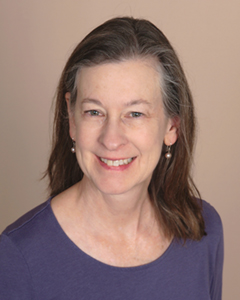From the Editor's Desk
Inspiring Earth’s Future Stewards
Science Scope—April/May 2020 (Volume 43, Issue 8)
By Patty McGinnis
 There’s something about being outside that students find invigorating. Perhaps it is the opportunity to learn in a different setting or the fact that they can stretch their legs as well as their minds. Geologists, ecologists, astronomers, and climatologists are some of the scientists whose work is conducted in the field. This important work often yields data that can only be collected through direct observation of a specimen or interaction with the environment. Field work, although exciting, requires adherence to additional safety rules, awareness of potential pitfalls, and flexibility. Whether you are fortunate enough to have many acres to access or simply a small, confined area on your school campus, I encourage you to take advantage of the great outdoors.
There’s something about being outside that students find invigorating. Perhaps it is the opportunity to learn in a different setting or the fact that they can stretch their legs as well as their minds. Geologists, ecologists, astronomers, and climatologists are some of the scientists whose work is conducted in the field. This important work often yields data that can only be collected through direct observation of a specimen or interaction with the environment. Field work, although exciting, requires adherence to additional safety rules, awareness of potential pitfalls, and flexibility. Whether you are fortunate enough to have many acres to access or simply a small, confined area on your school campus, I encourage you to take advantage of the great outdoors.
One of my favorite things to do is to take my students outside in hopes of sparking within them the same passion I possess for Earth and her inhabitants. My students have compared populations of woodland salamanders in various locations, sampled streams, partnered with students in another state for overnight ecology exchanges, worked with the Smithsonian to identify and map trees, collected bird breeding data for the state, and created leaf collections for middle school students in Montana in exchange for forb collections. Although taking a group of rambunctious and excited middle school students outside is not for the faint of heart, the preparation details are easily forgotten when immersed in the palpable enthusiasm exuded by students.
Richard Louv, in his 2005 book Last Child in the Woods: Saving Our Children From Nature-Deficit Disorder, coined the term “nature-deficit disorder” when describing the potential negative impact children experience when outdoor play is replaced by indoor activities. Our evolution occurred in the absence of the electronic devices to which we have become indubitably tied. Indeed, myriad studies support the notion that being outside is good for you physically, cognitively, and psychologically. But of greater concern is that we will ultimately be turning this world over to a new set of stewards—stewards who must cherish and care for it in its entirety. “We cannot protect something we do not love, we cannot love what we do not know, and we cannot know what we do not see. Or hear. Or sense” (Louv 2012, p. 104). I encourage you to explore the outdoors with your students; Earth will thank you.
Patty McGinnis is a teacher at Arcola Intermediate School in Eagleville, Pennsylvania. You can contact her at pattymcginnis1@gmail.com or on Twitter: @patty_mcginnis.
References
Louv, R. 2005. Last child in the woods: Saving our children from nature-deficit disorder. Chapel Hill, NC: Algonquin Books.
Louv, R. 2012. The nature principle: Reconnecting with life in a virtual age. Chapel Hill, NC: Algonquin Books.
Environmental Science Middle School


